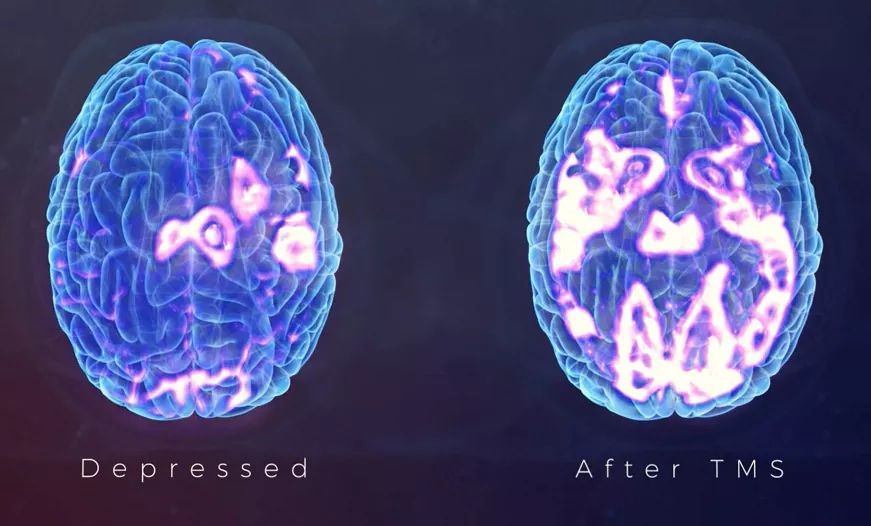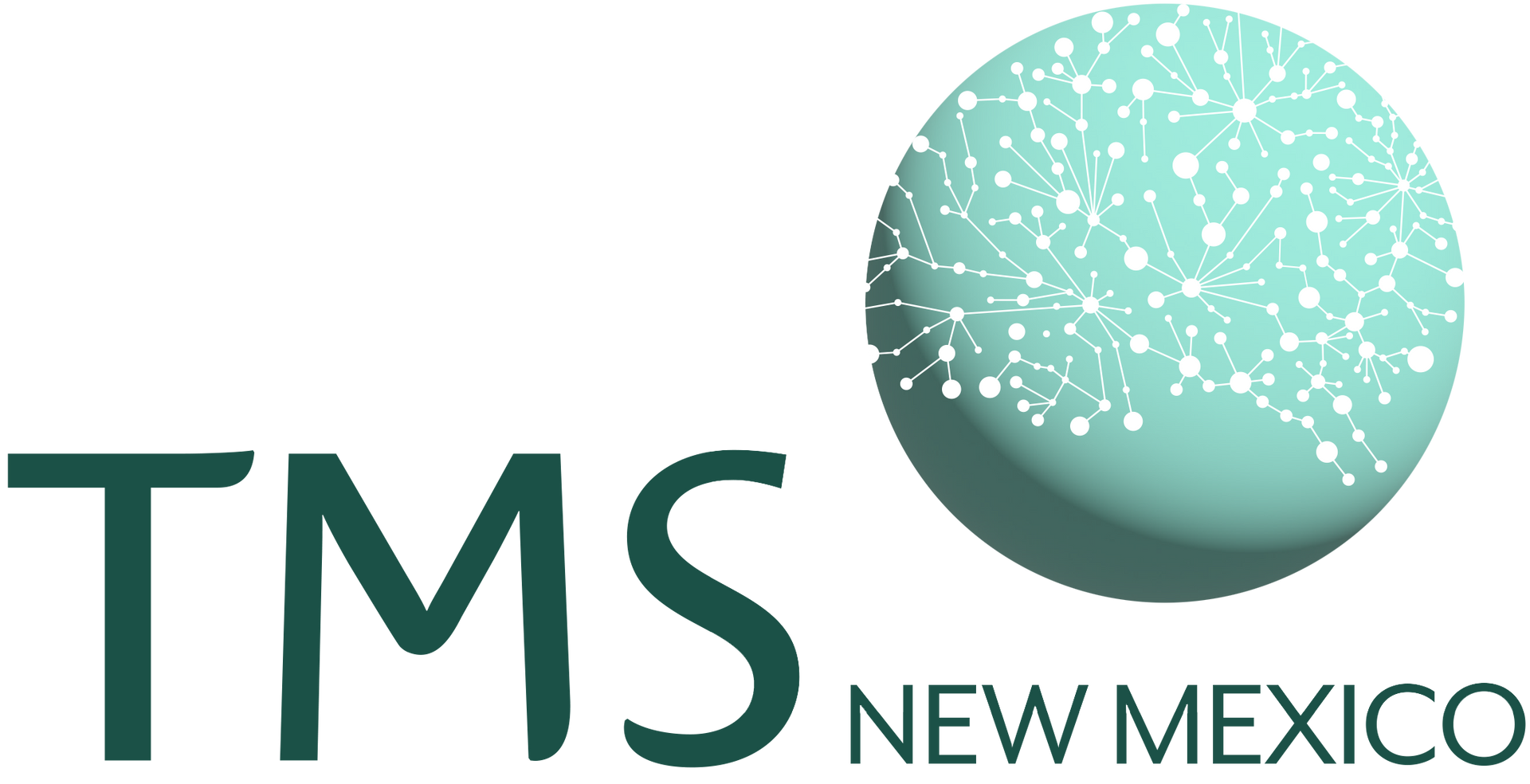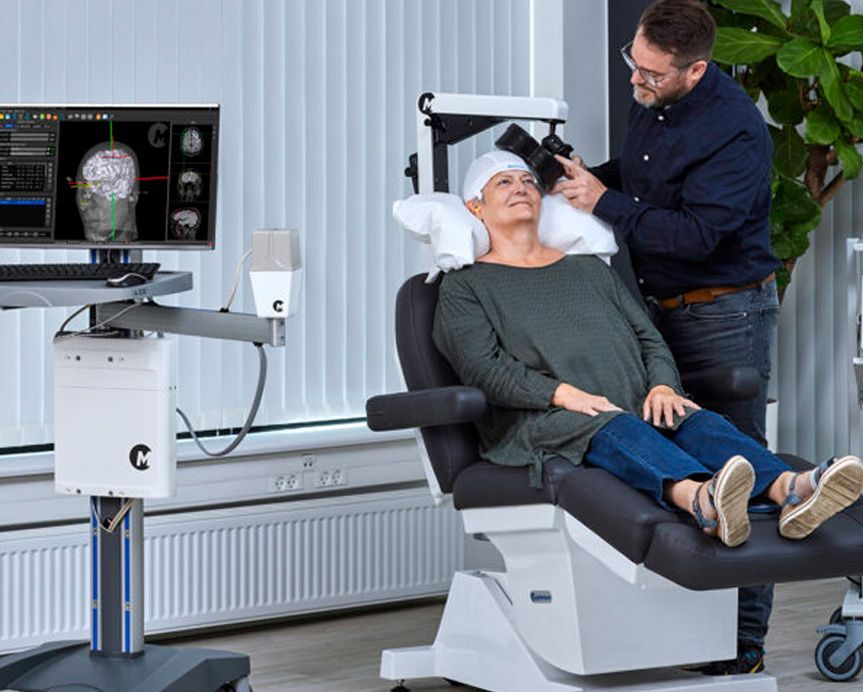300 Paseo De Peralta Suite 208, Santa Fe, NM 87501
Santa Fe TMS Treatment Center for Effective Mental Health
Searching for a reliable TMS treatment center? Our Santa Fe facility specializes in Transcranial Magnetic Stimulation therapy, ideal for those not responding to medication or standard treatments for depression and anxiety. In this article, you’ll learn how TMS works, the treatment process, and why our local mental health clinic excels.
Key Takeaways
- TMS therapy is a non-invasive treatment for mental health, particularly effective for treatment-resistant depression, with a high success rate and minimal side effects.
- Our Santa Fe TMS Treatment Center offers personalized treatment plans and state-of-the-art facilities, ensuring tailored care for each patient’s unique needs.
- The TMS treatment process includes initial consultations, regular session scheduling, and continuous monitoring for optimal outcomes, with additional mental health services available.
Understanding TMS Therapy
Transcranial Magnetic Stimulation (TMS) therapy is a breakthrough in mental health care, offering hope to those who have not responded well to traditional treatments. This non-invasive procedure uses magnetic pulses to stimulate nerve cells in the brain, particularly targeting areas associated with mood regulation. Unlike medications, TMS does not require systemic changes in the body, making it a preferred option for many.
TMS therapy is especially beneficial for individuals with treatment-resistant depression, providing a new pathway to recovery when other methods have failed. This therapy has been shown to be significantly more effective than standard treatments for individuals who have not responded to antidepressants. With a high success rate and minimal side effects, TMS is a game-changer in the field of mental health care.
Gaining insight into TMS therapy can demystify the process and alleviate any concerns. This section will explore what TMS is, its benefits for depression and anxiety, and the minimal side effects linked to this innovative treatment.
What is TMS?
TMS therapy, or Transcranial Magnetic Stimulation, is a safe, non-invasive procedure that uses magnetic fields to stimulate nerve cells in the brain. It is FDA-cleared and specifically designed for individuals with major depressive disorder who haven’t responded well to traditional therapies. The therapy involves the use of a magnetic coil placed on the scalp, which delivers repetitive magnetic pulses; hence, it is also known as repetitive TMS (rTMS).
One of the significant advantages of TMS therapy is its non-drug nature, which means it does not involve the side effects commonly associated with antidepressant medications. The procedure is conducted in a comfortable setting, often in specialized TMS centers equipped with advanced technology to enhance the effectiveness and comfort of the sessions.
Our TMS treatment center uses cutting-edge technology to maximize the effectiveness and comfort of each session. This dedication to advanced equipment and patient well-being sets us apart, highlighting our commitment to top-quality care.
How TMS Helps with Depression and Anxiety
TMS therapy has proven to be particularly effective for those who have not responded well to standard treatments like medications or traditional therapy. Studies have shown that 83% of patients reported significant relief from depression after undergoing TMS therapy. Additionally, out of 6,600 patients, 62% achieved full remission from their depressive symptoms following TMS treatment.
The therapy works by targeting specific areas of the brain involved in mood regulation, thereby helping to alleviate symptoms of depression and anxiety. For many, TMS therapy provides a viable option for managing anxiety, especially for those who have not found relief through other treatments. The non-invasive nature of the treatment and its high success rates make it an attractive option for many patients.
TMS therapy is also effective for alleviating anxiety symptoms, offering comprehensive mental health solutions. Its dual efficacy makes TMS a versatile and powerful tool in combating mental health disorders.
Minimal Side Effects
One of the most appealing aspects of TMS therapy is its minimal side effects. The side effects are typically mild and short-lived, often limited to minor headaches or localized discomfort at the stimulation site. This makes TMS a safe and preferable alternative for those who experience severe side effects from medications.

Why Choose Our TMS Treatment Center?
Selecting the right TMS treatment center significantly impacts outcomes. At TMS New Mexico, we offer a supportive and patient-focused environment. Recognizing the uniqueness of each patient’s journey, we provide personalized care tailored to individual needs, including the availability of individual therapy for one-on-one support.
Our TMS treatment center is recognized for its comprehensive approach to mental health care, offering not only TMS therapy but also additional services like electroencephalography (EEG) and general mental health consultations. This holistic approach ensures that all aspects of your mental health are addressed, providing a robust support system for your recovery.
Personalized Treatment Plans
At our center, the goal of TMS treatment plans is to help the patient get well. Each plan is tailored to meet the individual needs of the patient, including individual therapy sessions, and is monitored carefully to ensure its effectiveness. This personalized approach allows our therapists to adjust the treatment as needed, maximizing the chances of a successful outcome.
We believe that personalized care is paramount in mental health treatment. By crafting individualized treatment strategies based on thorough assessments, we align our efforts with each patient’s specific requirements, ensuring a compassionate and effective approach to mental health care.
State-of-the-Art Facilities
Our New Mexico Santa Fe mental health clinic is equipped with the latest in Transcranial Magnetic Stimulation technology, designed to enhance the effectiveness and safety of therapy. High-precision equipment ensures accurate targeting of neural pathways during TMS sessions, maximizing treatment outcomes.
Patient comfort is a top priority. Our treatment rooms are private and designed to create a calming atmosphere with relaxing decor and comfortable seating areas. This thoughtful design helps reduce anxiety, making each visit a positive experience.
The TMS Treatment Process
Understanding the TMS treatment process can help ease any apprehensions you might have. The journey typically involves a series of sessions designed to improve mental health, starting with an initial consultation and evaluation. Most treatment regimens involve an initial period of intensive sessions, followed by a tapering off as symptoms improve.
In some cases, accelerated TMS therapy can involve multiple sessions each day over a one to two-week period for quicker results. This flexibility in scheduling allows for a tailored approach that fits the specific needs and circumstances of each patient. Medication management is also integrated into the TMS treatment process to ensure comprehensive care, addressing behavioral, emotional, and mental health needs. The TMS treatment process includes initial consultation, session scheduling, and ongoing progress monitoring and adjustments.
Initial Consultation and Evaluation
The initial consultation is a crucial first step in TMS therapy. It involves an in-depth behavioral health evaluation to ensure proper diagnosis and develop a tailored treatment plan. During this evaluation, we review symptoms, treatment history, and current medications as part of our comprehensive medication management approach to create a personalized approach.
Preparation for the initial consultation includes gathering medical history, listing current medications, and being ready for a physical examination. Knowing what to expect during TMS sessions, such as duration and sensations, can also help ease anxiety.
Scheduling and Frequency of Sessions
TMS therapy sessions are typically scheduled five times a week, lasting between 20 to 40 minutes each, for a duration of 4 to 6 weeks. While the frequency of sessions can affect the speed of symptom relief, it does not significantly impact long-term treatment outcomes.
Arranging transportation is important for regular TMS therapy visits, ensuring consistent attendance. Our treatment plans adapt to the evolving needs of patients throughout their healing journey.
Monitoring Progress and Adjustments
Patient progress during TMS treatment is monitored closely to optimize outcomes and make necessary adjustments. Clinicians actively track the patient’s response during TMS sessions to make real-time adjustments for optimal treatment outcomes.
Adjustments to TMS treatment are based on therapy effectiveness and side effects experienced. This individualized approach ensures that each patient’s specific needs are addressed, leading to better outcomes.
Insurance and Payment Options
Insurance coverage can significantly reduce the out-of-pocket expenses for patients seeking TMS therapy. We will begin accepting insurance for TMS in 2025. This development is a significant step towards making TMS therapy more accessible to those who need it.
In addition to insurance, we offer affordable payment plans designed to make TMS therapy financially accessible for all patients. Our commitment to providing flexible payment options ensures that financial constraints do not stand in the way of receiving essential mental health care.
"A truly caring practitioner makes all the difference to me when it comes to mental health, and Sloan is the epitome of such a practitioner. She is invested in clients’ wellbeing and shows it over and over in the course of this treatment—and beyond. Highly, highly recommend!" - Sally Baker (TMS New Mexico Patient)
TMS Reviews & Patient Success Stories

Patient success stories illustrate the transformative effects of TMS therapy on mental health. Many patients have reported significant improvements in depressive symptoms after treatment at our center. Our dedicated team is here to provide support, offering compassionate care to help patients achieve success.
These testimonials highlight the substantial benefits of TMS therapy in enhancing mental well-being for those struggling with depression and anxiety. Here are specific stories of overcoming depression and managing anxiety through TMS therapy.
Overcoming Depression
Patients often report transformative experiences after undergoing TMS therapy, highlighting significant improvements in their mental well-being. Individuals recovering from severe depression have shared that TMS therapy provided them with renewed hope and the ability to engage in daily activities again.
Many patients express regret for not starting TMS therapy sooner, as it has significantly improved their mental state. These stories of overcoming depression through TMS therapy offer hope and inspiration to those still struggling with their mental health.
Managing Anxiety
Testimonials from patients highlight the relief from anxiety symptoms experienced after TMS therapy, emphasizing the treatment’s effectiveness. Many patients have shared how TMS therapy has alleviated their anxiety symptoms, allowing them to regain control over their lives.
Patients also report improvements in concentration along with reduced anxiety, which has helped them better manage their daily responsibilities. These testimonials serve as a powerful validation of TMS therapy as a viable treatment for anxiety symptoms.
Optimal Timing and Frequency
Administering TMS in the early phase post-stroke can lead to improved recovery outcomes for lower limb motor functions. The timing of the treatment is crucial, as early intervention can capitalize on the brain’s heightened state of plasticity following a stroke.
The frequency of TMS application also significantly influences recovery rates. Specific frequencies can be tailored to meet the unique needs of each patient. The most commonly observed treatment duration for rTMS targeting lower limb recovery is between 15 to 20 minutes per session over a period of 2 to 3 weeks. This duration has been found to be effective in promoting significant improvements in motor function.
Understanding the optimal timing and frequency of TMS treatments is essential for maximizing the benefits of this therapy. By tailoring the treatment to the individual needs of each patient, healthcare providers can enhance the effectiveness of TMS in promoting lower limb motor recovery.
Case Studies and Clinical Trials
Clinical trials have provided robust evidence supporting the effectiveness of TMS in enhancing motor function recovery for stroke patients. For instance, high-frequency rTMS (20 Hz) has been associated with significant long-term improvements in motor function. These trials highlight the potential of TMS to bring about substantial and sustained recovery.
One notable finding from these trials is the improvement in walking speed among stroke survivors. This enhancement in mobility is particularly important for improving the independence and quality of life for stroke patients. The positive treatment outcomes observed in these trials underscore the potential of TMS as a cornerstone of stroke rehabilitation.
Examining the results of case studies and clinical trials helps us better understand the practical applications of TMS and its impact on lower limb motor recovery. This evidence base strengthens the case for incorporating TMS into standard stroke rehabilitation protocols.
How To Get Started With TMS Therapy

Starting the journey towards better mental health can feel daunting, but our TMS center is here to guide you. To begin, consult with our certified TMS specialist to determine if TMS therapy is right for you and to develop a personalized treatment plan.
Here are the steps to get started: contacting the center and preparing for your initial visit.
Contacting the Center
Contacting our TMS center is the first step towards starting treatment or getting answers to your questions. Patients can reach us by calling our dedicated phone line or using our secure email for inquiries and appointments.
For immediate questions, consider using the dedicated phone line, while email or text can be used for less urgent inquiries. We are committed to making the process as seamless as possible, ensuring you have all the necessary information to begin your journey.
Preparing for Your First Visit
During the initial consultation and evaluation, patients will undergo comprehensive assessments to determine their eligibility for TMS therapy and to create a personalized treatment plan. To schedule an appointment or make inquiries about TMS therapy, patients can contact the center directly through phone or email.
It’s helpful to prepare for your first visit by gathering your medical history and current medications. Being ready for a physical examination ensures that the TMS therapy can be conducted safely and effectively, setting the foundation for a successful treatment journey.
Summary
Transcranial Magnetic Stimulation (TMS) therapy offers a beacon of hope for those struggling with treatment-resistant depression and anxiety. Our Santa Fe TMS Treatment Center provides state-of-the-art facilities and personalized care, ensuring that each patient receives the most effective and comfortable treatment possible.
We have outlined the many benefits of TMS therapy, the detailed steps involved in the treatment process, and shared inspiring success stories from our patients. If you or a loved one are seeking a new path to mental wellness, we encourage you to take the first step and contact our center. Together, we can embark on a journey towards a brighter, healthier future.
For those seeking a local TMS treatment center near Santa Fe New Mexico, TMS New Mexico is an excellent option. Our mental health clinic offers TMS therapy for various conditions. Potential patients can schedule a complimentary consultation to explore their treatment options and learn more about TMS.
What is Transcranial Magnetic Stimulation (TMS)?
TMS therapy, or Transcranial Magnetic Stimulation, is a non-invasive treatment that employs magnetic pulses to stimulate nerve cells in the brain, making it especially beneficial for those with treatment-resistant depression.
How effective is TMS therapy for depression?
TMS therapy for depression is highly effective, with 83% of patients experiencing significant relief and 62% achieving full remission of their symptoms. This makes it a promising treatment option for those struggling with depression.
Are there any side effects of TMS therapy?
Yes, TMS therapy can have mild and short-lived side effects, primarily including headaches or localized discomfort at the stimulation site.
How long does a typical TMS therapy session last?
A typical TMS therapy session lasts between 20 to 40 minutes. These sessions are typically scheduled five times a week over a period of 4 to 6 weeks.
How can I start TMS therapy at the Santa Fe TMS Treatment Center?
To start TMS therapy at TMS New Mexico's TMS Treatment Center, simply reach out via phone or complete our contact form to schedule your initial consultation and evaluation. The team will assist you in creating a personalized treatment plan tailored to your needs.
Cited Sources:
- Mantovani, Antonio et al. “Long-term efficacy of repeated daily prefrontal transcranial magnetic stimulation (TMS) in treatment-resistant depression.” Depression and anxiety vol. 29,10 (2012): 883-90. doi:10.1002/da.21967
- Tang, Si Jie et al. “Personalized, parcel-guided rTMS for the treatment of major depressive disorder: Safety and proof of concept.” Brain and behavior vol. 13,11 (2023): e3268. doi:10.1002/brb3.3268

HELPFUL LINKS TO LEARN MORE
Book an appointment at our mental health clinic in Santa Fe, New Mexico. You are not alone!

READY TO GET STARTED?
At TMS New Mexico of Santa Fe, we specialize in advanced neurocare and psychiatric services aimed at improving mental health for residents of Santa Fe County and Los Alamos County. Our tailored treatment plans are designed to specifically target depression, empowering our clients to lead more fulfilling lives. If you or a loved one struggles with depression, anxiety, OCD, PTSD, or another mental health issue, we may be able to help.
SERVICE AREAS
- SANTA FE
- CAÑONCITO
- SETON VILLAGE
- GALISTEO
- GLORIETTA
- LA CLENEGA
- LOS CERRILLOS
- MADRID
- TESUQUE
- CHUPADERO
- POJOAQUE
- LOS ALMOS
- WHITE ROCK
- NAMBE
- PECOS
- SANTA FE
- CAÑONCITO
- SETON VILLAGE
- GALISTEO
- GLORIETTA
- LA CLENEGA
- LOS CERRILLOS
- MADRID
- TESUQUE
- CHUPADERO
- POJOAQUE
- LOS ALAMOS
- WHITE ROCK
- NAMBE
- PECOS
- TAOS
MAIN LINKS
CONTACT
300 Paseo De Peralta Suite 208, Santa Fe, NM 87501
- Mon - Fri
- -
- Sat - Sun
- Closed
COMPANY
NPI# 1811753767

All Rights Reserved | TMS New Mexico

